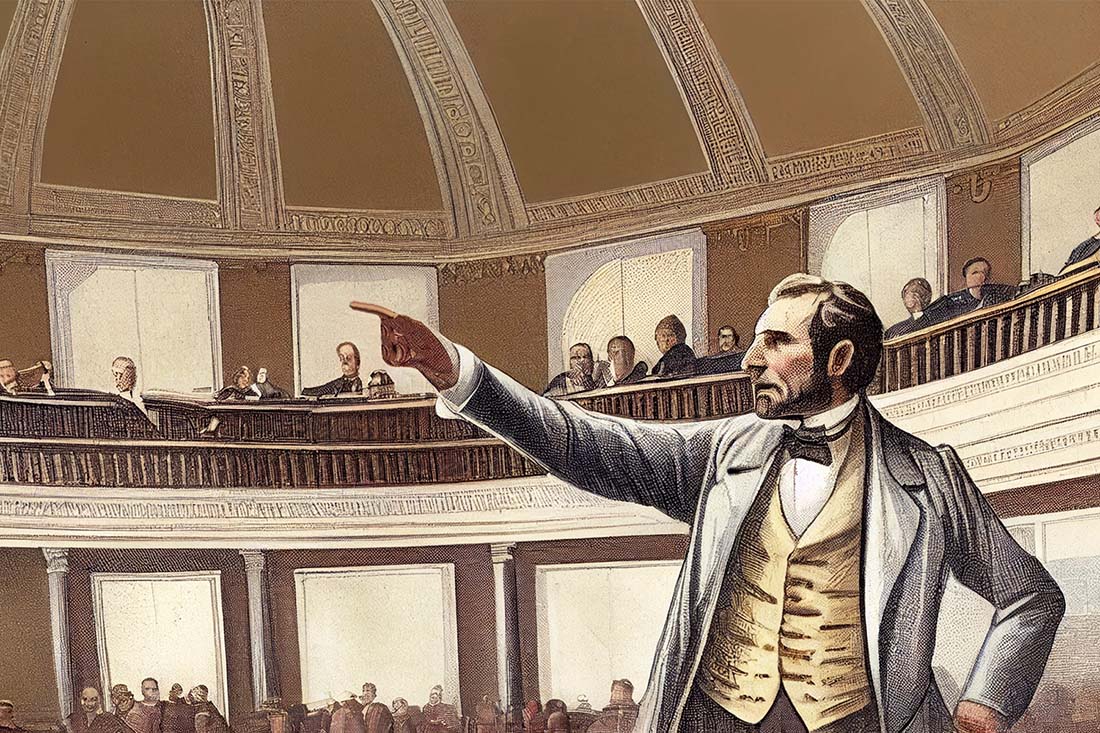
16 Mar That’s Unconstitutional! What does it really mean?
How many times have you heard “That’s Unconstitutional”? What does it really mean?
Welcome to American Stripes Forever, where we’ll discuss the freedoms and responsibilities of all Americans, based on the laws of nature, which are God-given, and the laws of this great country, which are spelled out in our U.S. Constitution. We invite you to share your thoughts, too.
We’re speaking as a group of freedom-loving individuals, neither as politicians seeking re-election nor as media pundits vying for ratings and trying to sway you to their vision of the world.
When our country was founded and decisions made to put a “government for the people and by the people” in place, the U.S. Constitution and its first 10 amendments, known as the Bill of Rights, were discussed, argued and written in four months by a group of amazing individuals during a hot and humid Philadelphia summer in 1787. The Constitution was ratified by the states in 1790; the Bill of Rights was ratified in 1791.
Yes, when the document was completed and ready for ratification by the states, the U.S. had unresolved problems and unfinished business such as the issue of slavery and how to structure a banking system. However, the new nation needed a framework for its government and the three branches spelled out in the Constitution (Executive, Legislative and Judicial) with its inherent checks and balances against tyranny, gave the United States that framework.
In the years since the Constitution and Bill of Rights were adopted, an additional 17 amendments have been ratified by the states. These include the abolition of slavery and giving women the right to vote.
Let’s Dive Into The Constitution to Better Understand What’s Unconstitutional
Let’s look at the 10th Amendment, known as the “enumerated powers” amendment:
“The powers not delegated to the United States by the Constitution, not prohibited by it to the States, are reserved to the States respectively, or to the people.”
That’s the whole amendment. If a particular power is not spelled out in the Constitution, the federal government does not have that power.
The enumerated powers amendment was to keep the federal government from overstepping its power with regard to the states and the citizens.
The Constitution specifies what each branch of government can do:
Article I, Section 8 delineates the powers of Congress (Legislative Branch)
Article II, Section 2 are the powers of the President (Executive Branch)
Article III, Section 2 (modified by 11th Amendment) are the powers of the Supreme Court (Judicial Branch)
Then, Article IV addresses the states (Article IV, Section 2, paragraph 3 was superseded by the 13th Amendment).
Remember, ANY powers not specifically given to the federal government belong to the states and the people. The states and the people are guaranteed a republican form of government by the Constitution (Article IV, Section 4). The U.S. is a republic, not a democracy.
The founders knew their world history, believing and fearing domination of any one individual (dictator or monarch) or group of individuals in government. The 2nd Amendment specifically addressed this fear of tyrannical government:
“A well-regulated Militia, being necessary to the security of a free State, the right of the people to keep and bear Arms, shall not be infringed.”
The U.S. populace is a well-regulated militia, ready to stand for freedom against tyranny. Thomas Jefferson said it best: “The strongest reason for the people to retain the right to keep and bear arms is, as a last resort, to protect themselves against tyranny in government.”
Our Constitution has been vilified by some and called a “living document” by those seeking to interpret the words rather than live within them. It’s not perfect; our form of government is not perfect.
In fact, the preamble of the Constitution says:
“We the People of the United States, in Order to form a more perfect Union, establish justice, insure domestic Tranquility, provide for the common defence, promote the general Welfare, and secure the Blessings of Liberty to ourselves and our Posterity, do ordain and establish this Constitution for the United State of America.”
“More Perfect Union” – our country will never be perfect, but it’s a preamble to ensuring liberty and freedom for all Americans and with that freedom comes the responsibility to care for our families, our communities and ourselves.
Read the next article in our series: Freedom Begins at Home
